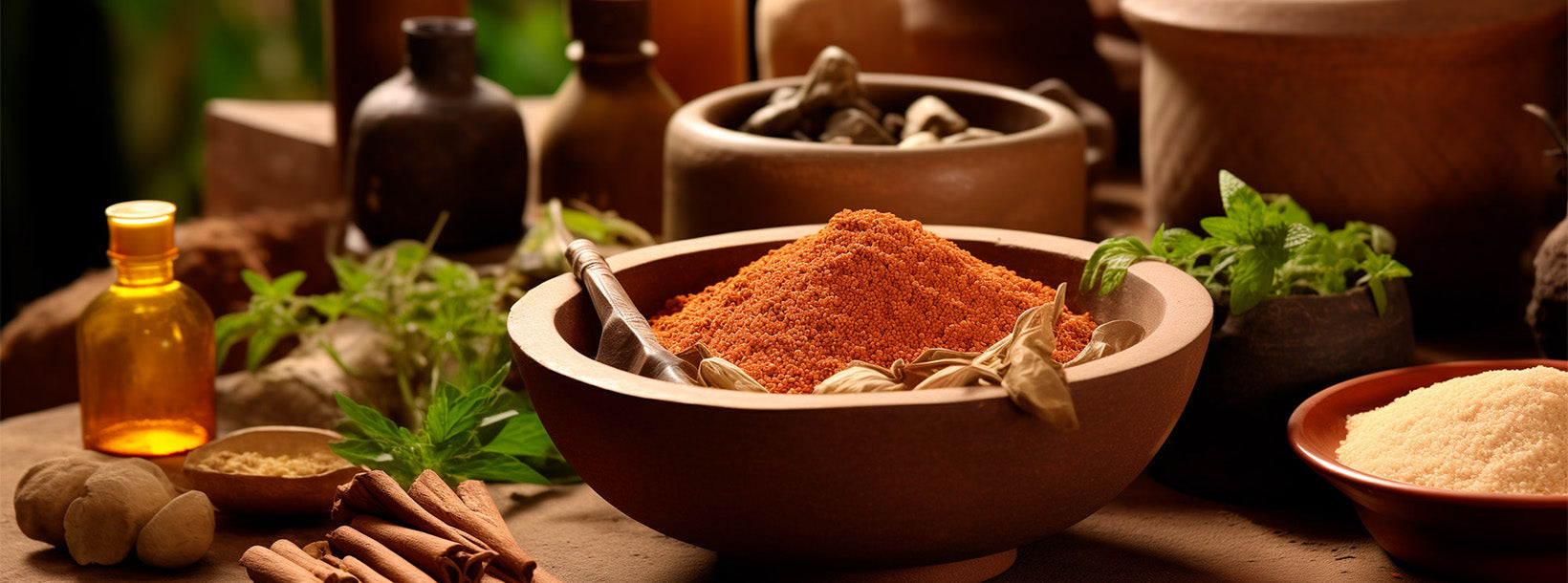
Ayurvedisch en kruiden
Ayurvedische en kruidengeneeskunde richten zich op natuurlijke genezing met behulp van plantaardige remedies. Ayurvedische geneeskunde, geworteld in oude Indiase tradities, benadrukt de balans in het lichaam door middel van voeding, levensstijl en kruidenbehandelingen. Kruidengeneeskunde maakt gebruik van de therapeutische eigenschappen van planten om verschillende aandoeningen te behandelen en het algehele welzijn te bevorderen. Beide benaderingen streven naar holistische gezondheid en preventie.
Essential Oils vs. Absolutes
When exploring the world of plant-based aromatics, you’ve likely come across terms like "essential oil" and "absolute." While they may seem similar, these two aromatic substances differ significantly in how they’re made, what they contain, and how they’re used. If you’ve ever wondered what sets them apart, this guide is here to clarify everything.
What Are Essential Oils?
Essential oils are highly concentrated aromatic compounds extracted from plants through methods like steam distillation or cold pressing (commonly used for citrus peels). These methods capture the plant’s volatile oils, which give it its characteristic scent and therapeutic properties.
Characteristics of Essential Oils:
- Extraction Method: Steam distillation or cold pressing.
- Consistency: Light, thin, and non-greasy liquid.
- Composition: Contains only the volatile, aromatic components of the plant.
- Solubility: Soluble in carrier oils and alcohol but not in water.
- Fragrance: Lighter and more volatile than absolutes.
- Uses: Popular in aromatherapy, massage, natural remedies, and diffusers. Essential oils are generally safe for skin application when properly diluted.
Examples: Lavender essential oil, eucalyptus essential oil, lemon essential oil.
What Are Absolutes?
Absolutes are also concentrated aromatic substances, but they are made using a different process known as solvent extraction. This method is particularly suitable for delicate flowers, such as blue lotus, jasmine, or tuberose, which cannot endure the heat of steam distillation without losing their fragrance.
How Are Absolutes Made?
- Solvent Extraction: The flowers are soaked in a food-grade solvent, like hexane, to dissolve their aromatic compounds, waxes, and pigments.
- Concrete Production: The solvent is evaporated, leaving behind a semi-solid substance called the "concrete."
- Alcohol Purification: The concrete is washed with alcohol to separate the aromatic oils from waxes and other residues.
- Final Product: The alcohol is gently evaporated, leaving behind the absolute—a thick, rich, and highly aromatic product.
Characteristics of Absolutes:
- Extraction Method: Solvent extraction.
- Consistency: Thick, viscous, and sometimes semi-solid at room temperature.
- Composition: Contains both volatile and non-volatile compounds, including waxes and pigments, resulting in a richer, more complex aroma.
- Solubility: Soluble in alcohol and oils but not ideal for water-based applications.
- Fragrance: Richer, fuller, and more true to the original plant’s scent.
- Uses: Primarily used in high-end perfumery, luxury cosmetics, and occasionally in aromatherapy. Due to the potential for trace solvent residues, absolutes are less commonly used for therapeutic purposes.
Examples: Blue lotus absolute, jasmine absolute, rose absolute.
Key Differences Between Essential Oils and Absolutes
| Feature | Essential Oil | Absolute |
|---|---|---|
| Extraction Method | Steam distillation or cold pressing | Solvent extraction |
| Consistency | Light and liquid | Thick and viscous |
| Fragrance | Lighter, more volatile | Rich, full-bodied, true-to-plant |
| Composition | Only volatile compounds | Volatile + non-volatile compounds |
| Uses | Aromatherapy, skincare, diffusers | Perfumery, luxury cosmetics |
| Plant Types | Hardy plants (e.g., lavender, eucalyptus) | Delicate flowers (e.g., jasmine, blue lotus) |
Why Choose One Over the Other?
Choose an Essential Oil: If you’re seeking a natural, therapeutic product for direct skin application, massage, or diffusing, essential oils are typically your best choice. They are lighter, more versatile, and free from solvent residues.
Choose an Absolute: If your focus is on creating perfumes or experiencing the richest, most complex aroma a plant has to offer, absolutes are ideal. They are the closest representation of the true scent of delicate flowers and plants that cannot tolerate heat.
Special Note: Blue Lotus Absolute
One of the most prized absolutes is blue lotus absolute, derived from the blue lotus flower (Nymphaea caerulea). Known for its intoxicating aroma and historical significance in ancient Egyptian rituals, blue lotus absolute is a luxurious addition to perfumes and spiritual practices. Its production through solvent extraction ensures the preservation of its delicate, mystical scent.
Conclusion
Both essential oils and absolutes have their unique strengths and uses. Understanding the differences between them can help you choose the right one for your needs, whether you’re crafting a signature perfume, practicing aromatherapy, or exploring the therapeutic benefits of plants.
Would you like to learn more about specific essential oils or absolutes? Let us know in the comments!










